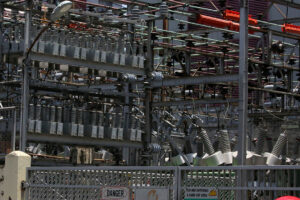
More EPIRA reforms needed to cut electricity costs — advocacy
THE House of Representatives must pursue more “comprehensive” reforms to the law that liberalized the energy industry, according to an advocacy group, citing the need to reduce power costs.
Legislators need to amend the 2001 Electric Power Industry Reform Act (EPIRA) that “uphold the rights of energy consumers to fair rates, reliable services, and transparent decision-making processes” to make electricity cheaper,” according to Nic Satur, Jr., chief advocate officer of Partners for Affordable and Reliable Energy (PARE).
“Meaningful reforms must prioritize transparency, accountability, consumer participation as an ex officio member in regulating agencies and the delivery of affordable and reliable energy,” he said via Viber.
“Empowering consumers to actively participate in rate-setting, policy formulation, and energy-related cases will ensure that our voice, grassroots experiences and insights contribute to a more equitable and efficient energy sector,” he added.
Amendments to the 24-year-old power law are among President Ferdinand R. Marcos, Jr.’s legislative priorities. The House last year approved a bill rationalizing the government’s power assets management body, which Speaker Ferdinand Martin G. Romualdez touted as an amendment to EPIRA.
“We believe this measure falls short of addressing the core issues of high electricity rates and inefficient power delivery,” Mr. Satur said.
Aside from making the energy industry more transparent and letting consumer groups have a say in power rate-setting, he said legislators should also look at sanctioning weak power companies.
He attributed mounting electricity costs to “mismanaged electric cooperatives,” delayed grid projects, and unplanned shutdowns, while citing system loss charges, the generation rate-setting process, and pass-through taxes as the reasons behind “frequent price hikes.”
“Congress should impose stricter and higher penalties on underperforming companies and agencies across power generation, transmission, and utility distribution,” he said.
Mr. Satur said he and other energy advocates “remain cautiously optimistic” that legislators will pass comprehensive power sector reforms before the 19th Congress steps down in June. — Kenneth Christiane L. Basilio
